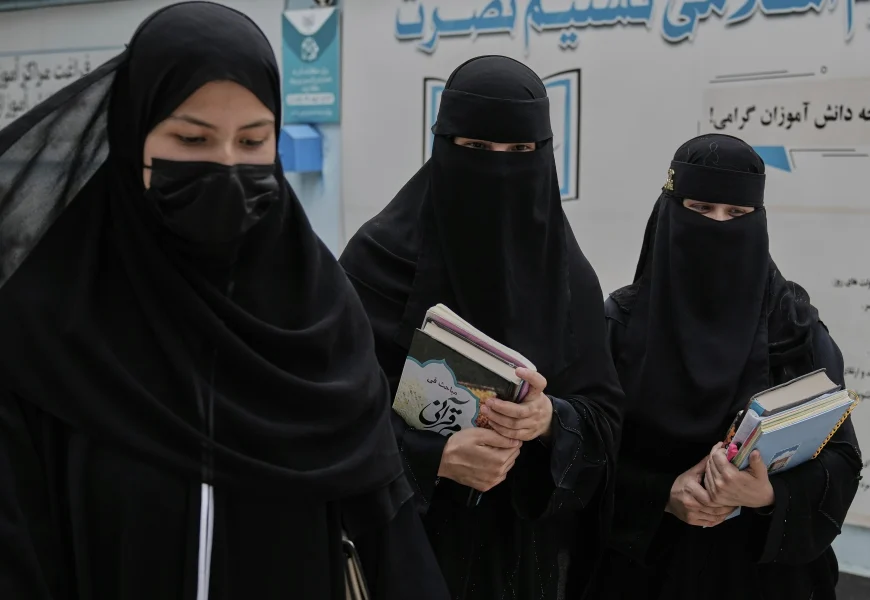KABUL, Afghanistan (AP) – For six hours every day after school, Nahideh works in a cemetery, collecting water from a nearby shrine to sell to mourners visiting loved ones’ graves. She dreams of becoming a doctor – but knows it is a futile dream.
With no access to education beyond the 6th grade, girls in Afghanistan turn to religious schools
KABUL, Afghanistan (AP) – For six hours every day after school, Nahideh works in a cemetery, collecting water from a nearby shrine to sell to mourners visiting loved ones’ graves. She dreams of becoming a doctor – but knows it is a futile dream.
When the next school year starts, she will be enrolling in a madrassa, a religious school, to learn about the Quran and Islam – and little else.
“I prefer to go to school, but I can’t, so I will go to a madrassa,” she said, dark brown eyes peering out from beneath her tightly wrapped black headscarf. “If I could go to school then I could learn and become a doctor. But I can’t.”
At the age of 13, Nahideh is in the last grade of primary school, the limit of education allowed for girls in Afghanistan. The country’s Taliban government banned girls from secondary school and university three years ago – the only country in the world to do so. The ban is part of myriad restrictions on women and girls, dictating everything from what they can wear to where they can go and who they can go with.


